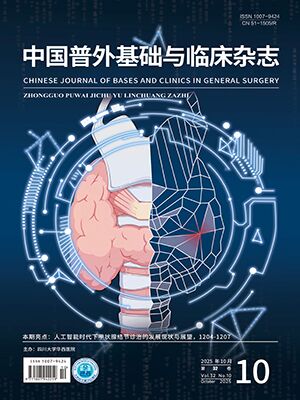| 1. |
Kondrup J, Allison SP, Elia M, et al. ESPEN guidelines for nutrition screening 2002. Clin Nutr, 2003, 22(4): 415-421.
|
| 2. |
Hartman C, Shamir R, Hecht C, et al. Malnutrition screening tools for hospitalized children. Curr Opin Clin Nutr Metab Care, 2012, 15(3): 303-309.
|
| 3. |
金迪, 蔡东联. 危重病人的营养治疗. 药学服务与研究, 2008, 8(2): 142-145.
|
| 4. |
蒋朱明, 陈伟, 朱赛楠, 等. 我国东、中、西部大城市三甲医院营养不良(不足)、营养风险发生率及营养支持应用状况调查. 中国临床营养杂志, 2008, 16(6): 335-337.
|
| 5. |
Kondrup J, Rasmussen HH, Hamberg O, et al. Nutritional risk screening (NRS 2002): a new method based on an analysis of controlled clinical trials. Clin Nutr, 2003, 22(3): 321-336.
|
| 6. |
Charney P. Nutrition screening vs nutrition assessment: how do they differ? Nutr Clin Pract, 2008, 23(4): 366-372.
|
| 7. |
Laporte M, Villalon L, Thibodeau J, et al. Validity and reliability of simple nutrition screening tools adapted to the elderly population in healthcare facilities. J Nutr Health Aging, 2001, 5(4): 292-294.
|
| 8. |
Corish CA, Kennedy NP. Protein-energy undernutrition in hospital in-patients. Br J Nutr, 2000, 8(3): 575-591.
|
| 9. |
潘美珍, 陈聿华, 唐佳婉, 等. 呼吸科住院患者营养状况和疾病负担调查分析. 中国初级卫生保健, 2017, 31(1): 49-51.
|
| 10. |
毛志音, 陈惠斌, 曾田荷, 等. 317 例食管癌患者术前营养风险分析. 现代肿瘤医学, 2016, 24(23): 3743-3745.
|
| 11. |
李素云, 喻姣花, 曾莉, 等. 住院患者营养风险筛查及营养支持状况分析. 护理学杂志, 2016, 31(21): 99-102.
|
| 12. |
孙大力, 徐鹏远, 岑云云, 等. 昆明地区某三甲医院普通外科住院手术患者营养情况调查. 重庆医学, 2016, 45(34): 4830-4833.
|
| 13. |
陈伟, 蒋朱明, 张永梅, 等. 欧洲营养不良风险调查方法在中国住院病人的临床可行性研究. 中华临床营养杂志, 2005, 13(3): 137-141.
|
| 14. |
左传丽. 应用 NRS2002 标准调查腹部外科病人的营养状况及营养支持. 全科护理, 2012, 10(13): 1235-1236.
|
| 15. |
王楠, 王玉梅, 刘雪梅, 等, 住院患者营养风险、营养不良发生率及营养现状的评估分析. 职业与健康, 2013, 29(19): 2424-2426.
|
| 16. |
张静, 陈格亮, 花超, 等. 内科老年患者营养风险筛查及营养支持使用情况分析. 世界临床药物, 2013, 34(6): 356-358.
|
| 17. |
庞冬, 郑凡凡, 周玉洁, 等. 普通外科住院病人术前营养风险、营养支持和医师相关知识的调查分析. 肠外与肠内营养, 2010, 17(2): 65-68.
|
| 18. |
段纪俊, 严亚琼, 杨念念, 等. 中国恶性肿瘤发病与死亡的国际比较分析. 中国医学前沿杂志(电子版), 2016, 8(7): 17-23.
|
| 19. |
潘玲, 毛德强. RS-2002 评估 473 例首诊恶性肿瘤患者营养状况. 重庆医学, 2013, 42(10): 1117-1121.
|
| 20. |
曾满萍. 晚期肿瘤患者的营养支持治疗. 中国肿瘤临床与康复, 2008, 15(5): 472-473.
|
| 21. |
Huhmann MB, Cunningham RS. Importance of nutritional screening in treatment of cancer-related weight loss. Lancet Oncol, 2005, 6(5): 334-343.
|
| 22. |
杨振淮, 李关宁. 胃肠道恶性肿瘤患者围手术期肠内营养支持的疗效分析. 实用全科医学, 2008, 6(5): 483-484.
|
| 23. |
von Meyenfeldt M. Cancer-associated malnutrition: an introduction. Eur J Oncol Nurs, 2005, 9 Suppl 2: S35-S38.
|
| 24. |
Akbulut G. New perspective for nutritional support of cancer patients: enteral/parenteral nutrition. Exp Ther Med, 2011, 2(4): 675-684.
|
| 25. |
武杰, 黄静. 营养风险筛查 (NRS2002) 在胃肠道肿瘤患者中的应用. 中国现代普通外科进展, 2012, 15(4): 331-332.
|
| 26. |
Bozzetti F, Gavazzi C, Miceli R, et al. Perioperative total parenteral nutrition in malnourished, gastrointestinal cancer patients: a randomized, clinical trial. JPEN J Parenter Enteral Nutr, 2000, 24(1): 7-14.
|
| 27. |
陈淑红, 唐有为. 欧洲营养风险筛查方法在消化内科住院病人的应用. 肠外与肠内营养, 2010, 17(4): 221-223.
|
| 28. |
戴福仁, 赵新新, 董素莲. 肿瘤内科住院患者营养风险筛查及营养支持应用状况. 现代实用医学, 2010, 22(6): 617-619.
|
| 29. |
余雪梅, 曾凯宏, 刘力, 等. 普通外科住院病人营养风险筛查和营养支持应用状况. 肠外与肠内营养, 2011, 18(4): 238-240.
|




